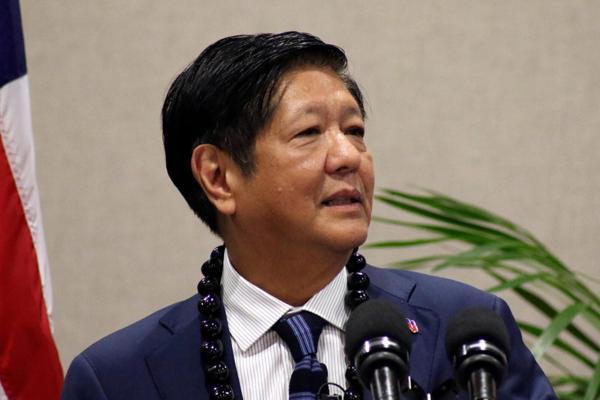Philippines to study constitution change for investment push: Marcos
MANILA


Philippine President Ferdinand Marcos said Friday he has ordered a study on whether the country's constitution needed to be revised to draw more foreign investment.
In his first public comments on the politically charged issue since becoming president last year, Marcos said certain laws drawn from the constitution either ban or discourage foreign investors from some parts of the economy.
The Philippines adopted its new constitution in 1987, limiting the presidency to a single six-year term, following the ouster a year earlier of Marcos' late dictator father and namesake who ruled the country for 20 years.
"What we're looking at here is the opportunity cost of those who would like to invest here but somehow the laws that derived from the constitution when it comes to the economic provisions do not allow them to, or make it non-viable for them," Marcos told reporters.
Guided by economic provisions from the constitution, Philippine law outrightly bans foreign equity in mass media and small-scale retail trade.
Foreigners are also limited to minority ownership in broadcasting, advertising, public utilities, private land and residential building ownership, schools, and deep-sea fishing, among others.
"My primary interest is to try and make our country an investment-friendly place," Marcos said Friday, adding the study was at an early stage.
His term ends in mid-2028.
House of Representatives Speaker Martin Romualdez -- the president's cousin -- has separately said he would push for changes to the economic provisions of the constitution next year.
Earlier this year the House passed a resolution calling for a constitutional convention to propose changes to the 1987 constitution.
Critics warn politicians would use the charter amendment exercise to insert changes that would allow them to stay in power for longer, like Marcos' late father.
Marcos did not comment on the possibility of changes to the term limit.
